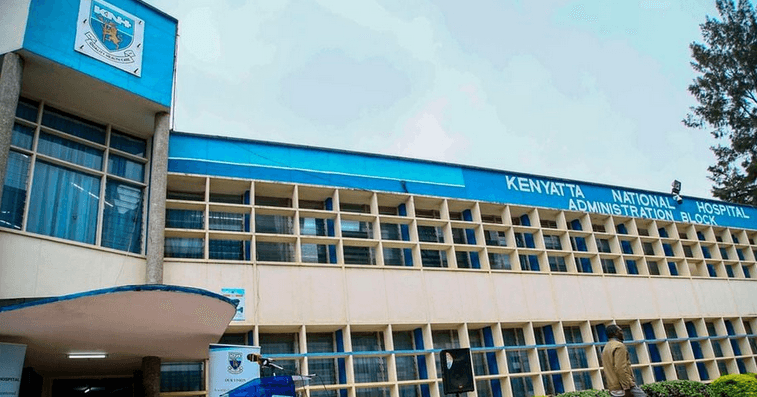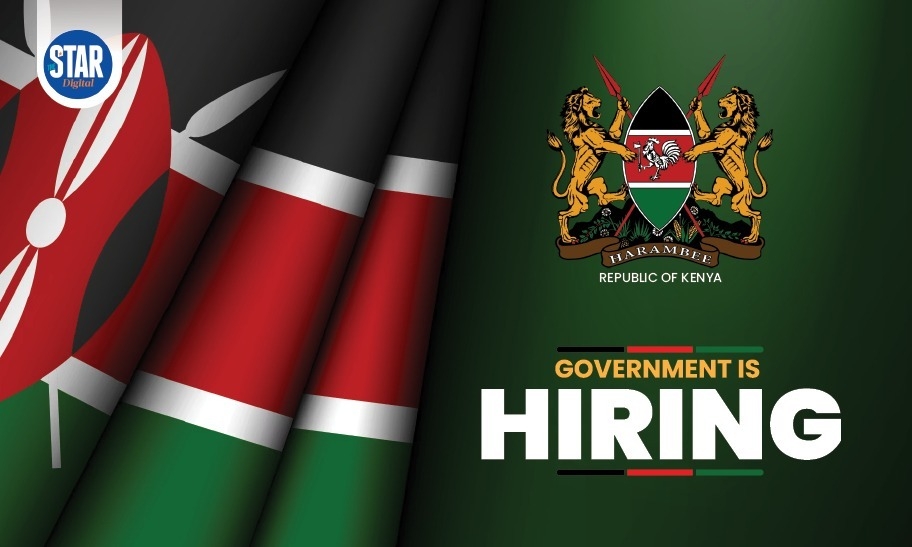For Joy Nashipai, 12, school is not just a place of learning but a second home.
Her daily smiles and the joy she finds in the teaching, playful, and mentoring experiences at Loltulelei Comprehensive School in Samburu County, are a testament to the positive impact of education on young minds.
She loves spending her day with her loving friends and supportive instructors and takes notes on mentoring pupils because she aspires to become a teacher.
"My teachers believe in me and encourage confidence, respect, and working hard. They urge me to become the best student and to have a heart full of love and happiness," Nashipai said. She aspires to join Moi Girls School in Maralal, Samburu County, after completing junior secondary school at her current learning institution. Later, she hopes to join a teacher training college.
Nashipai is also grateful for the Unicef-supplied school kits that students like her received.
"I was very happy to get the Unicef school bag and its supplies. Aside from notebooks, stationery pens, rulers, erasers, and writing books, it also included sanitary pads for me," said Nashipai.
She added that it made learning and attending school more meaningful and enjoyable.
Overcoming Challenges
Fifteen-year-old Dickson Loumeni knows that livestock is the family's lifeline, but he also recognizes the value of education. He spent most of his early years as a herder, caring for his family's herd of 40 cattle. In the pastoralist community, a family's wealth is measured by the number of cows, goats, and sheep they own.
However, the last two years have been bleak and hard on the family due to prolonged droughts. The severe drought in their area killed all livestock, forcing families like Loumeni's to leave their homelands for water and pasture.
Loumeni considered starting a business to buy more cows, but during an Out-of-School enrolment drive, the local school administration and teachers convinced him to join the school. Though older than his Grade Four classmates, he is happy to attend school and learn to read and write.
"When I first stepped into the school, I was greeted with overwhelming support from my peers and teachers, despite my long absence from the classroom. Today, I can proudly write my name and read a short story," he shares, beaming with pride at his progress.
He shares his career goals, "I am working hard in school to become a doctor in my community. I want to bring hope and smiles to everyone by treating them," Loumei said.
According to Loumeni, the school has kept him engaged in productive activities and steered him away from idle pursuits at home and in the community. It has instilled a sense of responsibility and a vision for his future.
"When I am in school, I am safer than at home where I engage in activities that do not encourage me to become a virtuous young man," he said, adding that interacting with him has taught him about access to education is one important child rights.
Improving Education and Hygiene
Losana Ladismo, a teacher at Loltulelei Primary School, noted that despite growing challenges such as drought, early marriage, teenage pregnancy, and other cultural practices that keep both boys and girls away from school, the number of learners is increasing daily.
"This inspiring trend is a testament to the impact of Unicef's support, our collective efforts as teachers, and the resilience of our school community. The number of children re-joining schools has increased since we began receiving WASH support, including improved access to clean drinking water, new student toilet facilities, and educational supplies such as desks that helped the school cope with the pressure from additional learners. The construction of the toilets has greatly improved the sanitation situation in the school," said Ladismo.
Teachers and Board of Management members were trained on hygiene promotion, including Menstrual Hygiene Management (MHM) and operation and maintenance of water and sanitation facilities in the school. The new sanitation facilities for both boys and girls have increased the hygiene levels, and the girls are happy and excited to have new bathrooms.
"The girls are delighted because of the menstrual hygiene support. They received two sanitary packs each and are now much more confident during their menses due to sanitary pads, adequate hygiene facilities, including clean toilets and functional bathrooms with running water," said Ladismo.
She noted that the pupils now confidently practice essential handwashing before critical moments, especially before eating and after playing or using the toilet. This is a significant step towards ensuring their health and well-being and reassuring the school community.
Students also receive guidance and counseling classes emphasizing the importance of making informed decisions, developing life skills, and appreciating the crucial role of mentorship. This emphasis on mentorship provides reassurance about the student's holistic development.
Building Resilience
Unicef WASH Specialist Jackson Mutia underscores the project's significance in bolstering community resilience to climate shocks in drought-prone areas like Samburu County. The project's focus on improved access to Water, Sanitation, and Hygiene (WASH) services is a crucial step towards this goal.
According to Mutia, the Embassy of Sweden in Kenya is a key partner supporting the project in Samburu North and Samburu East Sub-Counties of Samburu County. Their support is instrumental in providing access to a sustainable and climate-resilient water supply in the community, schools, and healthcare facilities in the area.
"The project is focused on providing access to safe and equitable water, sanitation, and hygiene services in Samburu County to ensure that residents can enjoy a safe and sustainable environment," said Mutia.
“Unicef is also collaborating with the national and county governments to ensure that more schools, early childhood development centers, and healthcare facilities have inclusive, gender-responsive WASH services. This collaboration makes us all part of a more significant effort towards a common goal, “ he added.
Looking Ahead
For Nashipai and Loumeni, the journey ahead is filled with promise and potential. Nashipai, with her aspiration to become a teacher, and Loumeni, with his dream of becoming a doctor, are both looking towards a more hopeful and brighter future.

















